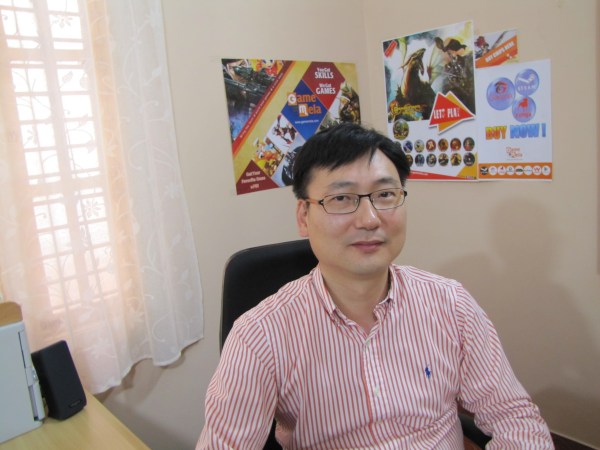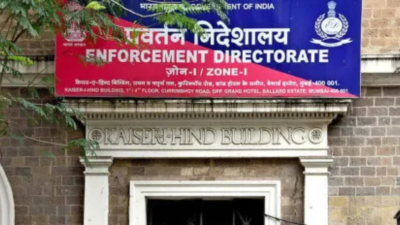Meet Chris Lee, the man who brought multiplayer gaming to India
Chris was entrusted with the responsibility of bringing a popular MMORPG from Korea and popularise it in India.
When Joomin ‘Chris’ Lee first came to India, back in 2004, there wasn’t much recognition for multiplayer games. Chris was the head of Sify’s Online Game Business. In one of his early meet with the company’s board of managers, he asked them a simple question, “How many here play computer games and what do you play?” In a room full of 20 directors, only two raised their hands. ‘I play Solitaire’ said one, while the other said he only played Minesweeper.

Chris was entrusted with the responsibility of bringing a popular MMORPG (Massively Multiplayer Online Role Playing Game) from Korea and popularise it in India. Needless to say, he had an uphill task ahead.
Eleven years later, Chris is the CEO of Funizen, which is the only multiplayer game publisher in India. It’s online portal, Gamemela.com has a million subscribers and Chris hopes that by the end of this year, the number may reach up to two million. The road wasn’t easy. In a country which had no idea of what an MMORPG is and no existing platform to support it, Chris had to develop an ecosystem with suitable technology, platform and the right content to spread multiplayer gaming in India.
Starting up
Chris has a Sociology major from the Korea University. He also holds an MBA in International Business from the Graduate School of Pan-Pacific Studies. Before coming to India, Chris was the Marketing Director at Nako Interactive, the first 3D game developer in South Korea. There, he was instrumental in the launch of the world’s first full-3D MMORPG, Laghaim.
Being closely associated with online gaming worked in favour of Chris, who had to work with managers and CEOs who were not essentially ‘gamers’. He says, “Korea and China have a huge market for gaming. Earlier, many company leaders used to believe that China and India are similar markets, given almost equal population, GDP and GNP. That was a huge mistake,” says Chris. “China was at least six years ahead of us when we started working with multiplayer gaming in India. You can’t simply pick up a game and push it in India hoping it would perform the way it did in China.”
Chris had to learn that the hard way. “We brought A3, a popular MMORPG back then, to India. We bought the license from the developers and localised the game by building a platform where Indian gamers could come in play. We called the game A3 India,” says Chris.
According to him, not many people knew what an MMORPG was back then. An MMORPG is a genre of web-based game, where a large number of gamers can participate and play with one another as different characters in a fanciful world set by the developers. “We carried out a survey among gamers on A3 India. Out of 100, almost 90 said they found the game too complex. They couldn’t cope with the various nuances of multiplayer gaming and demanded a simpler game,” says Chris.
“In Korea, much like India, online games are played mostly in Cyber Cafes. There, the cafe owners would rope in the gamers by promoting the game and telling them why the game is so great,” Chris says. “We figured out we had to get the cafe owners on our side to promote our games. But, there was another challenge. Most owners are aged people who are not much interested in games. We had to explain the concept of MMORPG to them first.”

Befriending Cafe owners
Back in 2005, most companies, including Sify, tried to promote online games by putting up posters and banners in cyber cafes, hoping it would attract gamers. “It wasn’t as simple as that. By just putting up posters, we missed out in connecting with the owners and as a result we missed out in connecting with the gamers,” says Chris.
Chris resigned from Sify and started Funizen, hoping to be the country’s leading online and smartphone game publisher. “We had to figure out a way to befriend the cafe owners and eventually we found one,” says Chris.
Earlier, most cafe owners maintained a ledger to keep their daily records of expenditure and income. It wasn’t a foolproof method, as the owners really couldn’t track the earnings when they were not in the cafe and also couldn’t spot if any manipulation is being made to the ledger. Funizen came up with Cafe Management Solution (CMS), which helped the owner keep full records on electronic medium.
“We gave out the CMS for free. We tried it with a few cafes first, installing it in about 600 cafes. After six months, we checked our records and were shocked to see that only six out of the 600 were using the CMS,” says Lee. “We went back and enquired why the owners were not using the free solution we offered. They said that they were more comfortable with the ledger and prefers the old way than the new.”
Chris and his team devised an offer – if any owner would use the CMS continuously for a month, they would be rewarded with a cheque of Rs 1,000. “So we went back after a month and to our delight, everyone of them had used it for 30 days straight and that they like it as it makes their work much easier,” says Chris.
Then, Funizen told the owners that the CMS is a commercial product and the cost for the software is Rs 1,000. The owners can choose to either take the thousand-rupees cheque (while the software would be deleted from their computers), or they could continue using the CMS without paying anything. “About 90 per cent of the owners went with the latter option and eventually we won the trust of the Cafe owners. Slowly, they also started taking interest in the games we brought out and were more welcome to the concept.”
Funizen worked closely with hardware manufacturers like Intel, AMD, CoolerMaster and others to upgrade the PCs in the Cafes and therefore, provide the platform and hardware where gamers can come and play. Today, Funizen has a network of 3,500 cafes all over the country.

Reaching out to the gamers
According to Chris, one of the biggest problems that India face is the unfriendly economic environment that supports gaming here. “When you are playing a game, if you want to make an in-game purchase, like an armour or a better gun, you have to pay by credit cards,” says Chris. “Most of the gamers are young students. Obviously, they didn’t have credit cards to buy upgrades. So, what they did was approach cafe owners and used their credit cards to make purchases.”
The owners would often ask for a price more than what was listed in the game. For example, if one wishes to buy an armour or a magic power for $10, the owner would ask for $11. Thus, the gamers grew increasingly annoyed with the process. Chris figured out a way around this issue, which would satisfy both the gamer as well as the owner.
“Any in-game purchasing is made through e-pins, which are like electronic currencies for gamers. We decided to make wholesale purchases of e-pins from game developers,” says Chris.
Chris and his team bought wholesale stocks of e-pins at a margin rate of around 20 per cent. For example, each $100 e-pin was bought at $75. Then, these e-pins were sold to cafe owners at $90 per e-pin. The owners would finally sell these e-pins to gamers at $100. “This way, the owners were happy because they made a profit of $10 in each purchase and the gamers were happy that they were paying the same price as quoted on the game’s site,” says Chris.
In 2013, Chris also brought out Gamemela.com, an web portal which allows the users to buy e-pins and all the latest games like Dota 2, League of Legends and Elsword India. “By the first half of next year, we hope to gather one crore subscribers”
With time, cyber cafe gaming culture is waning, owing to home broadband services and smartphone gaming. Chris says, “In Korea, however, cyber cafes are still hotspots for gamers and gaming competitions. There, cafes are a fun place to be in, where gamers can come with their friends and play, shout, or do whatever they want. Also, they are served food and beverages which are always an attraction for most.” Funizen is now working with Indian cafe owners to make their cafes come at par with Korean ones. “Now, many cafes, mostly in Mumbai and Delhi are serving tasty food and beverages, offers the latest games and allow the games to book group gaming sessions.”
Building a sustainable gaming future
According to Chris, multiplayer gaming in India is still at a nascent stage. “We are going against mammoth numbers. For example, Tencent, a Chinese gaming company had an annual revenue of $10 billion in 2013; there are around 10,000 smartphone game developing companies in China. You can understand where the other countries stand,” says Chris.
“Since most home-based gamers here use foreign servers to play games, it is hard to put a finger on the exact size of multiplayer gaming in India. However, we know its a huge number,” says Chris.
However, Chris is hopeful. “For many global investors, India is a market of huge potential,” says Chris. “However, most investors still have an askewed impression of India. Many think its a country of cows and curries. We need to change this mindset.”
“Whenever we get an investor to visit India, they would be baffled by the crowd and traffic. They would ask, is there any system in this country?” says Chris. “I would ask them to think of India as a teenager’s room. Sure, it may seem that everything is strewn around and it would be impossible to find anything in the room. But, the teenager himself knows exactly where things are. With time, you will see that India has an well-established system which is no less effective than any other country.”
According to Chris, with the right technology, platform and content, a healthy ecosystem can be developed in India, which will support and sustain the growth of the Indian gaming industry.







